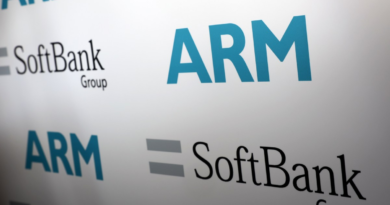Defense tech and ‘resilience’ get global funding sources: Here are some top funders
We live in a very different world since the Russian invasion of Ukraine in 2022 and Hamas’s Oct. 7 attack on Israel. With global military expenditure reaching $2.4 trillion last year, startups are hoping to get a share of the pie, and formerly reluctant investors are keen to help them do so.
The U.S. budget is by far the largest, with contracts worth $53 billion to major tech firms between 2019 and 2022. But the rise of defense tech as an investment trend is very much global.
German-based AI startup Helsing is a strong example of the unprecedented amounts of capital available to tech companies with military potential.
Investor appetite is particularly strong for tech solutions with dual-use potential, meaning that they can be used for both civilian and military applications. The idea that defense tech can benefit society more broadly is also reflected in the rising concept of “resilience tech.”
More than the worn-out term of “defense,” the word “resilience” reflects the idea that innovation can make democratic societies less vulnerable to attacks and help them recover faster.
For instance, Helsing co-CEO Gundbert Scherf said that he and his co-founders created the company “because we believe that AI will be essential so that democracies can continue to defend their values.”
The fact that Helsing’s mission resonated with mainstream investors such as Spotify founder Daniel Ek reflects a mindset change in society as a whole, but also in venture capital itself.
While typically prevented from investing into weapons by their so-called vice clause, funds large and small are now willing to fund international startups in the broader resilience tech space, with the blessing of major limited partners such as the European Investment Fund.
From the EU to Ukraine to Israel, here are some venture capital firms taking a bet on resilience tech outside of the U.S.
NATO Innovation Fund
NATO Innovation Fund is currently one of the most frequently mentioned players in resilience tech conversations. A $1 billion fund rarely goes unnoticed, and even more so when it is dedicated to a sector where venture capital has been scarce. However, it had maintained a low profile following its official launch in August 2023, even declining interview requests.
Not anymore: One year in, NIF disclosed the first investments it made into a wide range of verticals — AI, space tech, manufacturing, transportation, and robotics —but always with an eye on “advancing defense, security and resilience.”
NIF’s direct investments can only go to startups from the 24 countries that are its LPs. This includes Iceland, but not France, for instance, which could help bring fresh funding to locations that have traditionally received less capital but are even keener than larger countries on resilience tech.
However, NIF’s scope is made a bit more flexible by the fact that it is also a fund of funds. The VC firms it has backed so far include Alpine Space Ventures, Join Capital, OTB Ventures, and Vsquared Ventures.
OTB Ventures
Founded in 2017, above-mentioned OTB Ventures existed long before NIF, but its focus on deep tech is taking on a new flavor. With support from NIF, but also the European Investment Fund (EIF), the Amsterdam-based firm with Polish roots has already started deploying its $185 million early-growth fund into what it calls “real tech.”
OTB’s take on “real tech” translates into a focus on space tech, enterprise automation and AI, cybersecurity and fintech infrastructure; all of which can easily fall under resilience tech, too.
Its co-founder and managing partner Marcin Hejka also understands dual-use technology as a reality for many startups. “It’s absolutely natural that the defense sector is applying more and more technologies with civilian roots,” he told TechCrunch in March.
MD One Ventures
Dual use is the focus of MD One Ventures, a VC firm based in the U.K. and investing in early stage companies. Founded in 2021, it describes itself as “dedicated to supporting applied deep tech innovation for the U.K., Europe and Allies.”
This leaves the door open to a wide range of applications. “We are agnostic across a range of subsectors and technology types, and have invested in both software- and hardware-based companies, with [national security], enterprise and defense backgrounds,” MD One’s site explains.
Its portfolio includes startups such as Labrys Technologies, a Slack-meets-location-meets-payments for military and humanitarian scenarios, and Materials Nexus, which uses AI to discover new materials.
Israel Resilience Fund
Launched in late 2023 in the aftermath of the Hamas attacks, the Israel Resilience Fund is aiming to raise $50 million to invest into startups impacted by the war or developing solutions relevant to Israel’s immediate needs.
It is one of the funds of Israeli investment platform OurCrowd, which as of March had secured $17 million in commitments for this special fund, for which it waived all management fees and carried interest, and with a focus on catalyzing co-investments from public and private sources.
From 8 disclosed investments last December, the Israel Resilience Fund’s portfolio has now grown to 35 teams, representing some 1,000 jobs in a country where 14% of employees work in tech. Arguably thanks to initiatives like these, the sector has shown resilience, with Israeli startups raising more than $3.1 billion since the war began.
D3
D3 is an early-stage fund whose name stands for its call to “Dare to Defend Democracy.”
“We launched our fund in the summer of 2023 with a primary goal to invest in founders who leverage technology for helping Ukraine defend itself and define the future of the West’s national security,” its site explains.
With a usual investment of $125k for an equity stake of 7%, it is also open to making follow-on investments of up to $750k in later rounds led by other investors. Its current portfolio covers verticals such as drones, sensors, unmanned aerial vehicles (UAVs), often with an element of AI.
D3 was also one of the promoters of a recent defense tech hackathon in London. The first of its kind, but likely not the last, it confirms that these VCs will also have a growing pipeline of startups to invest in.




